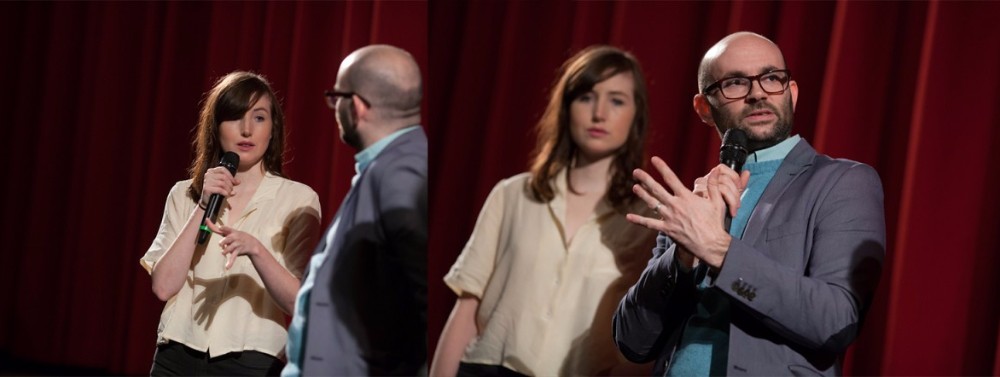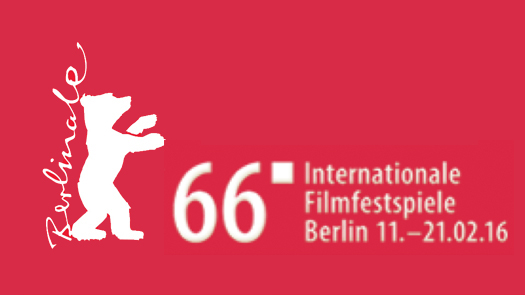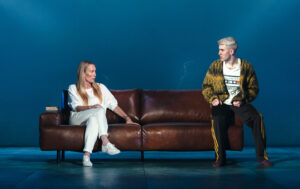Berlin Film Festival 2016: Kate Plays Christine: An interview with director Robert Greene

Robert Greene is an American documentary filmmaker who uses experimental investigative film to question the documentary genre by foregrounding performance and revealing processes, instead of using talking heads and narrative. His latest film, Kate plays Christine, reunites him with long-time collaborator and prolific actress Kate Lynn Sheil, who uses these methods to try and capture a character study of Christine Chubbuck, a local TV news anchor who committed suicide live on camera in 1974.
What attracted you to the story in the first place?
I first heard the story ten years ago and the nature of her suicide immediately makes you question what is real and what isn’t. You try and wrap your head around it and the first, immediate question is “Why do I care?”. Then you ask yourself, as she spent so much of her life on the screen, how do you put that into narrative. I had no idea, and that intrigued me even further. Kate and I had known each other for ten years so our collaboration helped the concept for Kate Plays Christine in an organic way. I could only imagine Kate taking on the role. This film within a film was going to be a failure and we set it up that way and she was part of that process from the get go. It become an experiment of fiction in which we had no way of anticipating the results but knew we would learn a lot about Christine on a deeper level through it.
Can you talk a bit about how you worked with the actors and non-actors?
The concept necessitates programming on every level, which means a constant questioning of ourselves: what we’re doing and why we’re doing it. She had to be herself, she had to play herself, which are related to each other. She also plays a bad actor in bad re-enactments. Eventually, through that, we have to find something out about Christine. If there’s no end result, it’s a bust. That’s the gamble. To me, all of it is academic unless we find a way of conjuring Christine through this process. It was a lot of failure and dead ends in the beginning. We kept hearing “You can’t do that, you can’t do this,” and we were left staring at a void and that’s where the real challenge began. That impossible task I set out was possible on paper because we had all worked together so much and there’s a lot of trust there. That worked very well on paper but was a different story once the cameras started rolling.
Did you encounter any legal issues from her family?
No, any scripted aspect of the film is all based on footage of Christine that is in the public domain. We’re not trying to imagine some secretive side of her that was left untold. If you read the initial article on her and watch the reenactments, they are almost identical. There are one or two variations where we pushed something a little further.
Werner Herzog is famous for playing with reenactments and explicitly manipulating subjects. I saw some signs of that process in Kate plays Christine. Can you talk a bit about that?
It’s more present. In Herzig’s Little Dieter Needs to Fly, he’s running through the re-enactments. It’s not a statement, it’s deliberatively performative, and it’s aware of itself. It puts you in the place of the filmmaker, to think about what it must feel like to think about this. I wanted the traditional documentary parts to feel like fiction and the fiction parts to feel like a documentary of a failure of recreating something. I wanted to flip those nodes. If you can do that, you immediately start thinking about what was happening at the moment of filming. Why do I, as a viewer, want to immediately narrativise it and make a story out of it? Why does it make me uncomfortable when we avoid putting things in a box?
I think another thing I was interested in was the idea of social performance. We’re all performing, every day, consciously and subconsciously and that’s the fabric of society. If we could have understood Christine within that context we would have understood her better. I don’t know if that would have stopped anything but when you take an actor and put them in that context, the audience becomes aware of that and realises they’re acting and starts thinking about how social performance is invisible for the most part. Welcome to my class on the nature of documentary cinema!
Sean Gallen
Read our review of Kate Plays Christine here.
Read more of our reviews and interviews from the festival here.
For further information about Berlin Film Festival 2016 visit here.


























Facebook
Twitter
Instagram
YouTube
RSS